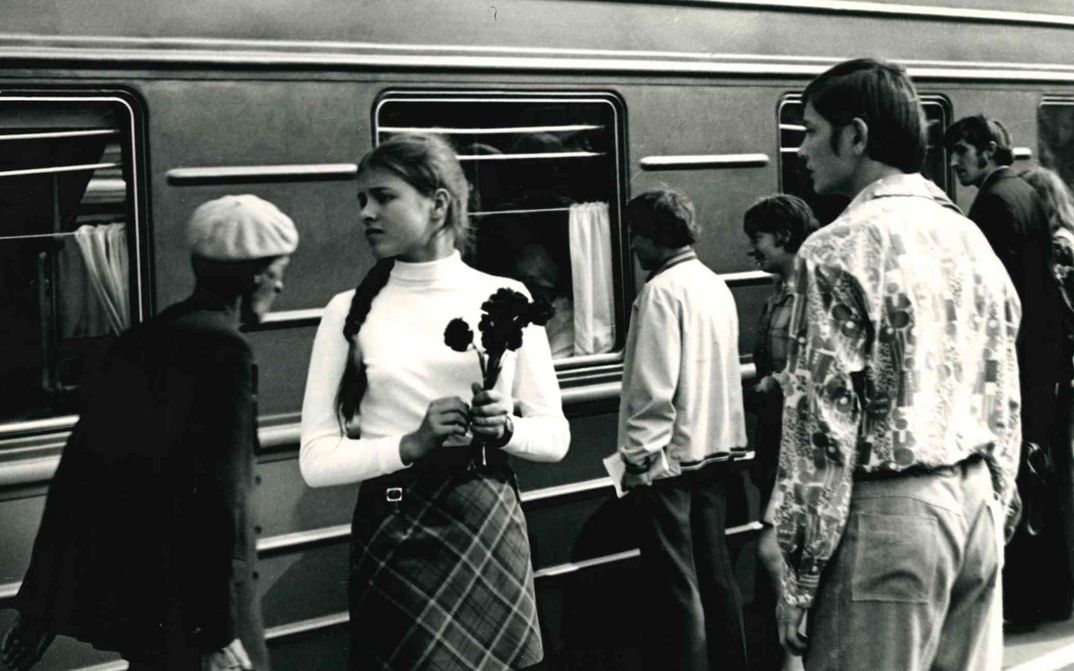Women Make Film (2)

Women make films. This should go without saying - but it doesn’t. Women have been behind the camera since the beginning of film history. But there is no question that in the 125-year history of film, access to filmmaking has been made difficult or even impossible for women, that they have not had the same opportunities as men, that the films they have made against the odds have rarely been included in the canon, that they have been overlooked, marginalized and forgotten, that their legacy has been neglected and that they have often been written out of film history. In a series extending over four months, we will present works by women directors from a wide range of countries and eras, that have not received enough attention and continue not to receive enough, in order to give them visibility.
Wanda Jakubowska
One film above all is linked to the name of Polish director Wanda Jakubowska (1907–1998): made in 1947, OSTATNI ETAP (The Last Stage) was the first ever feature to attempt to depict the Holocaust and is based on Jakubowska’s own experiences as a prisoner at Auschwitz-Birkenau and Ravensbrück. She’s far less known for her entire cinematic oeuvre, which spans 50 years and encompasses around 20 films. Her significance for Polish cinema is undisputed: in 1930, she was a founding member of the avant-garde film group START, which produced experimental shorts and documentaries. Her first feature was made in 1939 but was never shown because of the start of the war and is regarded as lost. After the war, Jakubowska was quickly able to find her footing again in the film industry, from 1949 to 1974, she also taught at the film school in Łódź.
Grappling with National Socialism and her experiences during the war, when she formed part of the resistance, left a mark on her political stance; her memories of this period form a thread running through her cinematic oeuvre. She remained true to the style of social realism until her last film in 1988. During her life, she was committed to the cause of the Polish Communist Party. This made her a controversial figure in the Polish cultural scene and may be a reason why her films have remained so little known, with the exception of THE LAST STAGE. Alongside the four films made between 1947 and 1985 that directly engaged with concentration and labor camps and the memory of them, she also shot two children’s’ films and an epic about a model Socialist hero called Soldier of Victory.
Supported by Polnisches Institut Berlin.
Dinara Asanova
Born in Kirgizstan, Dinara Asanova (1942–1985) studied directing at the WGIK film school in Moscow after working in various different capacities at Kirgisfilmstudio, and went on to work at Lenfilmstudios in Leningrad from 1974. The nine features she shot until her untimely death at the age of just 42 mainly focus on young people. They are personal portraits, often linked to a sharp critique of social problems in the Soviet Union. Music—rock and jazz—play an important role in her films: it is her protagonists’ form of expression and bears testimony to Asanova’s interest in the cultural underground. Music also gives her films their rhythm, which try to get close to the interior lives of adolescents, allow room for digression and improvisation and are primarily interested in atmosphere and mood. She likes working with non-professional actors, using their spontaneity and directness for her films, which often seem tinged with the documentary. Although her films were recognized by the critics and audiences alike in the USSR, she remained a peripheral figure in the film scene—due to her central Asian background, her unconventional approach and her focus on the marginalized. She remained largely unknown in the West.
Ana Mariscal
Ana Mariscal (1921–1995) from Spain is primarily known today as an actress. She started out in film at a very young age via her brother, actor and director Luis Arroyo, and was a celebrated star from the 40s onwards. In order to be able to direct films herself, she founded the production company Bosco Films with cinematographer Valentín Javier, later her husband, and took on numerous filmmaking tasks herself. Parallel to making her own film, she continued working as an actress for film and theatre and as a screenwriter and author. From 1953 to 1968, she shot ten features, which received little attention and appreciation. She financed her films herself and with the help of her private circle. (Annette Lingg)
The series was made possible by funding from the Federal Capital Cultural Fund.